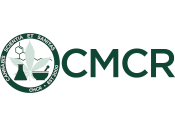INVESTIGATOR: Edythe London, Ph.D.
STUDY LOCATION: University of California, Los Angeles
PROJECT TITLE: Evaluating the efficacy of cannabidiol for reducing cigarette use
FUNDING SOURCE: Center for Medicinal Cannabis Research
PROJECT TYPE: Clinical Study
STATUS: Active
ABSTRACT:
Background-Significance-Hypotheses. Cigarette smoking is a leading cause of preventable death. There are effective smoking cessation treatments, but most people relapse after trying to quit smoking, and new treatments are needed. Preliminary evidence suggests that cannabidiol (CBD) can facilitate smoking cessation. Innovation. This will be the first study of subchronic (8-week) CBD to facilitate smoking cessation. The bioavailability of CBD from oral administration is limited, but the product to be tested uses nanotechnology to substantially enhance bioavailability. Study Design-Methods. This will be a randomized, double-blind, sequential dose-comparison study of CBD (600 and 1200 mg/day, 8week treatment) vs. placebo in equal numbers of men and women (18-65 years) seeking smoking-cessation treatment. Participants will receive smoking cessation help via daily text messages offered by the National Cancer Institute’s Smokefree.gov website. Changes in cigarette use, abstinence and retention in treatment will be assessed, along with plasma concentrations of CBD, its primary metabolites, as well as anandamide and 2- arachidonoylglycerol (2-AG). Other assessments will include measures of nicotine dependence and withdrawal. Statistical Plan of Analyses. The primary analytic tool will be the generalized linear mixed model, using group (low dose, high dose, placebo) and time (baseline, end of intervention), and their interactions as primary predictors along with subject-level random effects to account for individual differences. The primary hypotheses correspond to significant interactions, modelling the difference in change over time in cigarette use and secondary endpoints. Implications. This study addresses gaps in literature offering preliminary evidence that CBD is a promising therapeutic for smoking cessation. Positive findings would justify and inform a future more comprehensive study, such as a multi-site trial of CBD for treatment of Tobacco Use Disorder.

